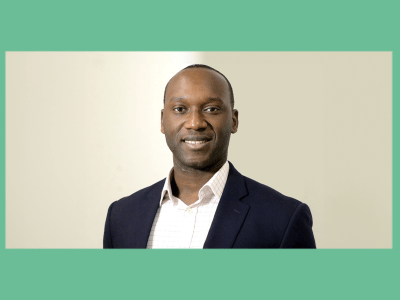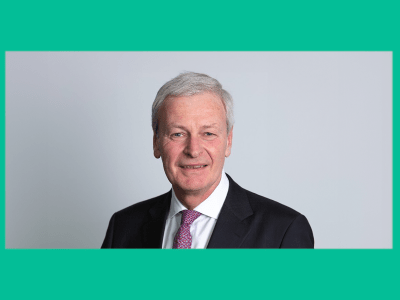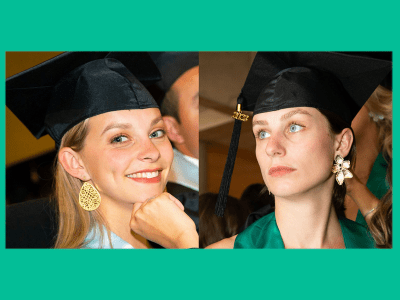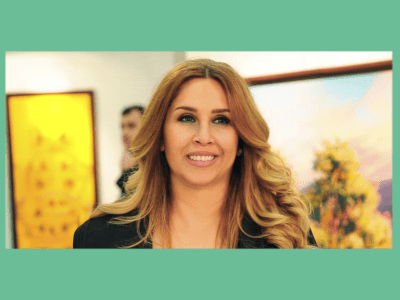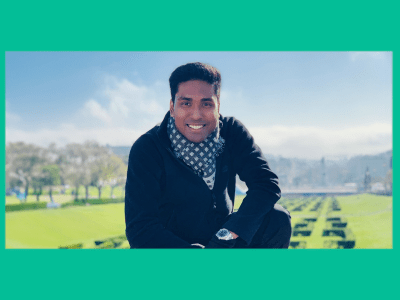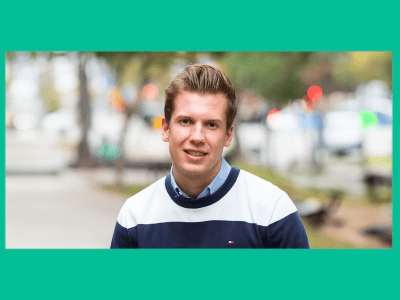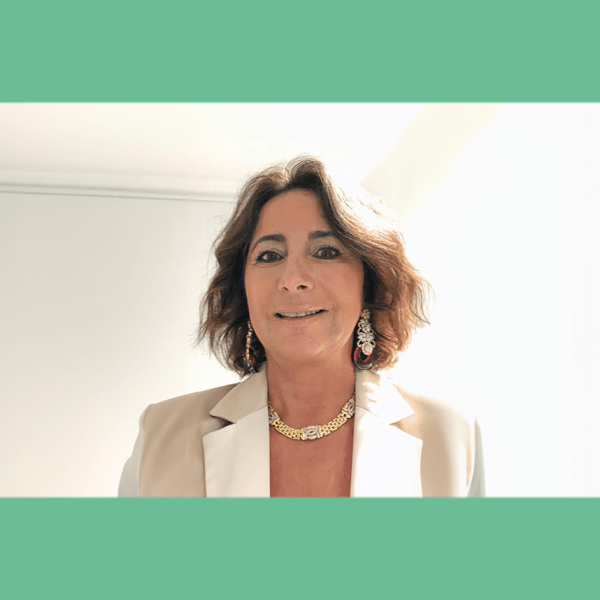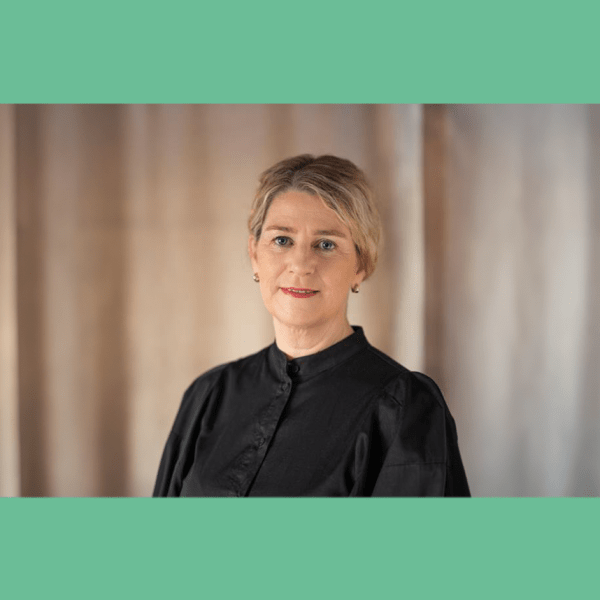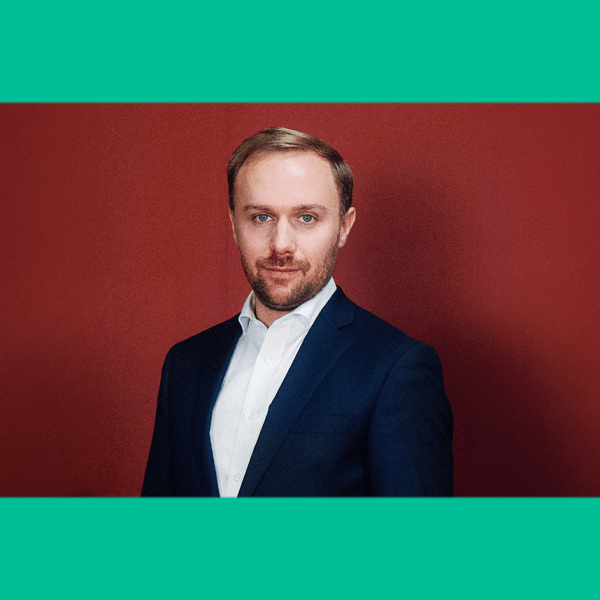“We Need to Introduce Sustainability into the Way That We Do Business” – André Hoffmann, Vice Chairman of Hoffmann-La Roche
Learning From Leaders, EU Business School’s flagship series of exclusive conferences by top global business leaders, introduces students, alumni and guests to insights from some of the most influential global business leaders. After a packed spring season featuring leaders from Google, Starbucks, LVHM Group, Four Seasons and more, followed by a short summer break, the fall season kicked off with an inspiring interview with André Hoffmann, Vice Chairman of Hoffmann-La Roche.
Founded in 1896 by André Hoffmann’s great grandfather, Hoffmann-La Roche is now the world’s largest biotech company, with over 90,000 employees and a presence in more than 150 countries. The company has two main areas of focus; diagnostics, which accounts for about 20% of turnover, and pharmaceuticals.
In the conference with Peter Vanham, author of “Before I Was CEO,” André discussed his career and shared his personal business philosophy, drawing lessons from the natural world to foster a sustainable, conscious approach to capitalism.
Here we’ve highlighted some of the key insights André shared at this illuminating virtual event.
Epidemic Preparedness to Ensure Business Continuity
It was clear to Hoffmann-La Roche that an epidemic would occur; it was just a matter of time. The global community had successfully averted six crises over the past ten years that could have followed outbreaks of diseases including malaria, dengue fever and SARS 1. To the company, it was inevitable that a virus would arise that would be more challenging to control.
For this reason, the Hoffmann-La Roche board already had a comprehensive epidemic preparedness plan in place. When the coronavirus began to spread, work was immediately shifted online and business discontinuity was successfully avoided.
As many other guests who’ve contributed to the Learning From Leaders series have attested, it’s essential for all business leaders to be prepared with a crisis plan in order to safeguard their company and stakeholders.
Contributing to the COVID-19 Effort
As a leader of a large and influential pharmaceuticals and diagnostics company, Mr. Hoffmann had useful insights to share around the coronavirus pandemic.
As soon as the Chinese authorities published the genetic code of the novel coronavirus in February, Hoffmann-La Roche started developing tests to identify the virus. Since then they’ve developed three different tests: the PCR test, the first specific test for COVID-19 which detects if someone is carrying the virus; the antibody test which is a blood test that shows if someone has been exposed to the virus; and finally, the antigen test with a 97% certainty which diagnoses whether you’ve had the virus or not with results in 15 minutes and without the need for complex machinery.
Having developed these pioneering tests, Hoffmann-La Roche became unavoidably entangled in the global political issue of which countries should get first access to their solutions. Reflecting on the experience, André spoke about how essential international bodies such as the WHO are. It is his belief that the allocation of resources and the distribution of goods across international borders should be controlled by an international body. As a private company, Hoffmann-La Roche could only do their best to navigate the incredibly complex and pressured situation. They were approached by a number of countries who, undermining the recommendations of the WHO, tried to buy the entire production to stockpile tests for their populations. Hoffmann-La Roche refused and devised a plan to distribute tests fairly. First and foremost, this had to be based on selling tests to countries equipped with the machinery needed to use them. It was also a question of negotiation, of balancing international interests, and of explaining to powerful leaders that treating the virus at its source is the most effective strategy to protect citizens around the world, rather than focusing on testing at borders to slow the spread.
Hoffmann-La Roche re-organized their workforce to increase capacity by 70, and are now able to manufacture a couple of million PCR tests, as well as an incredible 15-20 million of the simpler-to-make antigen tests, per month. This is starting to make a dent in the huge numbers of tests that will be needed. Thankfully, this effort is being matched by other pharmaceutical companies around the world. André highlighted how brilliant the unprecedented collaboration between governments, pharmaceutical companies and research organizations has been. Working together has enabled the rapid progress being made in testing, treating and developing a vaccine for COVID-19. However, we are still not at the capacity needed to be able to test the population systematically.
Mr. Hoffman does not believe it likely that a vaccine will be released before the end of the year. Once a vaccine has been approved, it must be manufactured in enormous quantities, and then delivered and administered to the right people at the right time. And although this process is moving forward as fast as possible, it is still going to be complex and time-consuming. The other option, herd immunity, is still a long way off. For that approach to be effective, 80-90% of the global community must be infected, and this figure has not yet reached even 10%. Despite these facts, Mr. Hoffmann quoted Desmond Tutu: “I am a prisoner of hope.” And with his industry insight and expertise, if André has hope, we can all hope too.
What COVID-19 Can Teach Us
“Fifty years ago, the idea of protecting nature was a nice concept, but today we are realizing more and more that it is an integral part of the system. Humanity will not survive very long in non-functioning nature, and the coronavirus is a very good example of that. Disease would not have spread to a healthy, functioning humanity.” Viruses, André explained, do not spread in healthy, functioning societies. The extent to which coronavirus has spread and its devastating impact globally are symptoms of the arrogance humans have displayed in acting as masters of the planet.
Zoonoses are infectious diseases that pass from animals into humans. The leading theory on the origin of coronavirus is that it started in bats, and then was passed via a live animal market to humans. Mr. Hoffmann explained that viruses of this kind circulate all the time in the animal kingdom, where resistance has been built up over time. The rapid expansion of human civilization into all corners of the planet has exposed our species to diseases which we’ve never encountered before. In much the same way as native Americans died when settlers from abroad brought foreign illnesses into their lands, the foreign illnesses of the animal world are leaking into ours faster than we can develop resistance.
“We need to be much more humble,” Mr. Hoffman told the audience. Having acted for a very long time as alpha predators with nothing to hunt us, the impact of the coronavirus should remind us that humans are not invincible. We need to build a complex global system to provide resilience in the future and, for this, collaboration across sectors and countries will be key.
Data and a Digital Future
Reinventing global systems will be essential if we hope to manage the various challenges facing humanity, including climate change, loss of nature, and the psychological as well as economic effects of the pandemic. This is where Mr. Hoffmann believes data will become fundamental.
With recent developments in artificial intelligence, we are now more capable that we’ve ever been of making use of the vast quantities of data we produce. In the pharmaceutical industry, this will support work in the clinic identifying diseases and knowing how best to treat them. In healthcare more broadly, data can show us where the system is ineffective, so that better solutions can be brought in. Mr. Hoffmann also remarked that, “The current model of pharmaceuticals is based on expensive pathology for people who can afford to pay […] so we need to understand how we can prevent disease now, much more than how we can cure it.” Careful data management, he believes, is the best way to achieve this.
Consequently, Hoffmann-La Roche have changed their business model and are now investing heavily in data, both medical and sociological, to develop a clearer understanding of how to positively influence the health ecosystem.
A Sustainable Approach To Business
As a child, Mr. Hoffmann spent a considerable amount of time in the nature reserve near his home in the Camargue, in southern France. His father was an ecologist, so it was perhaps inevitable André would develop an interest in the natural world.
Throughout his professional life, Mr. Hoffmann has drawn insights from nature and from his experiences in organizations such as the WWF and the MAVA Foundation to inform his approach to business. “The reason that natural, social and human systems are under pressure is that we are demanding too much from them,” he explained; “the business community has to step up.”
Mr. Hoffmann does not subscribe to the Milton Friedman doctrine that the business of business is business. In other words, that the only purpose of business is to make profit. This approach suggests that onus of repairing the collateral damage caused by business is on society.
Conversely, André believes that: “We need to introduce sustainability into the way that we do business. The role of business is not just to make money. The role of business is to be a net contributor to society.” However, the way in which we assess the value of companies is financial, so to get the corporate world to sit up and take notice of the damage being done to the planet, the social and environmental impact of a business needs to be ascribed a monetary value and recorded in its accounts. As Mr. Hoffmann said: “What gets measured gets managed.”
A Career in Pharmaceuticals and the Natural World
For much of his career, Mr. Hoffmann has straddled two worlds that many people think completely incompatible: big business and environmental charities. Alongside his role at Hoffmann-La Roche, André spent 20 years on the International Board of Directors at WWF and is involved in numerous other organizations that drive forward sustainability and see business as a force for good.
After obtaining a degree in economics, chosen so he could gain the business understanding needed to contribute to the family business, André became director of the research institute his father established on the Camargue. The director had suddenly fallen ill and they needed a replacement. Although he thought it would be just for a couple of months, he remained there for two years. This is a lesson, he said: “You need to be opportunistic, if something develops in front of you, go, don’t think about it too hard.”
At the time, the difference between working in a for-profit and non-profit organization was much more pronounced, and so André followed this with a move to work in the city London for a financial firm. As he put it, “If you really want to change the system, you need to be where it is, and it is more in the financial community than in the ornithologist community in the Camargue.” In the City of London, he found no comprehension of the interconnectedness of business and nature. Instead, nature was “out there”, not in the board room, and it was the duty of others to look after it. “I think that perception, that humanity or any type of business cannot exist without nature, is slowly sinking in,” he said, but at the time the common opinion was: “Let us make money, and then we will give money to charity who will look after nature,” which was completely contrary to André’s own understanding.
While in London he started his own business, spurred on by an important principle: “If you want to change the way things are done, you can wait for the regulators to do it, you can wait for social pressure to do it, or you can start an initiative which, by demonstrating the viability of your idea, can help speed up the process.” At the time, no one in the city was recycling wine bottles. André saw an opportunity and was inspired to do something. Unfortunately, the business folded as the UK was importing wine in green bottles and exporting whisky in clear bottles; they couldn’t find enough customers to take and reuse their recycled wine bottles. However, Mr. Hoffmann still believes in this approach: “Using the power of entrepreneurship to address certain pockets of inefficiency in the way we run our resources, I think that is a very important way of changing the system, you are actually creating a business opportunity out of a societal need.”
Mr. Hoffmann returned to France to study an MBA at INSEAD, where he collaborated with another student to start and then sell the very successful New Covent Garden Soup company. He then worked at FMCG giant Nestlé before joining the board of Hoffmann-La Roche at the same time as his cousin. Together, they worked to establish a sustainability and governance committee, making Hoffmann-La Roche among the first big Swiss companies to do so.
Sustainability and Values-Driven Capitalism
Mr. Hoffman is a firm believer that within a company you should be able to live your values. Having established the sustainability committee, signaling to the rest of the company that these issues mattered, André subscribed Hoffmann-La Roche to the Dow Jones Sustainability Index. This became an important way to push the sustainability agenda forwards. His strategy worked: Hoffmann-La Roche remained pharmaceuticals sustainability champions for ten consecutive years, at which point sustainability had stopped being an additional consideration and had become simply the way things were done, an embedded and integral part of the decision-making process.
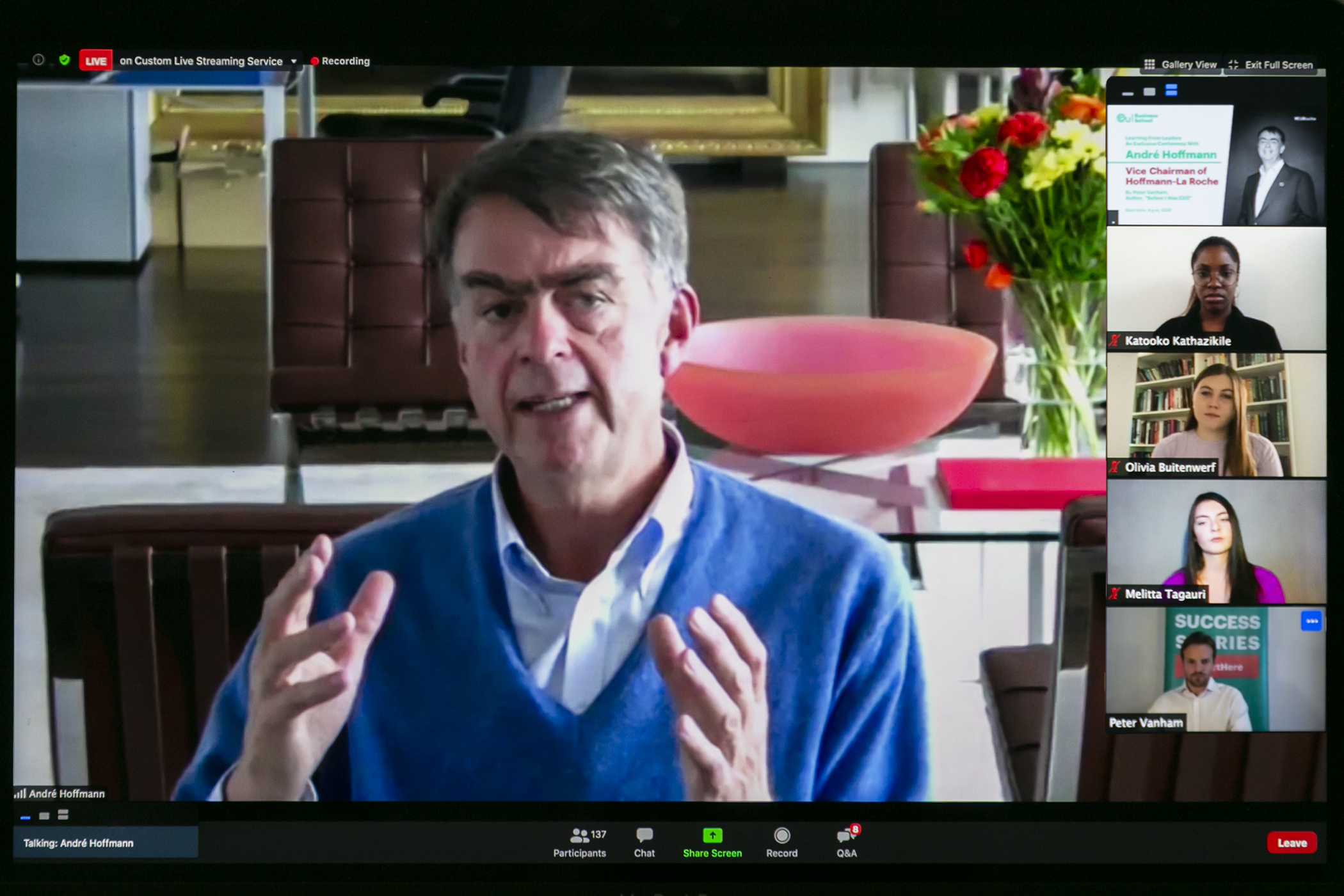
Hoffmann-La Roche does not have a sustainability department. As André said: “You don’t do sustainability on top of what you do. If you don’t act sustainably, all the things you do will not work.” When asked by an insightful student about the challenges of operating in other countries where sustainability is not considered such an important issue, Mr. Hoffmann answered: “When I was at business school I was told, if you want to be successful, you need to think internationally and act locally. That is not true anymore. You cannot treat people differently; we are in a completely interconnected world. Whenever something happens in the field or in an office it is instantly global. So, the idea of saying there are two types of standards, the standards you have in developing countries and the standards you have in developed countries, that’s dead, that’s not possible. Nobody will tolerate us misbehaving in a different country.” Instead, he believes that “Business is a force for good […] Business is not just there to make a profit, it is there to spread a certain way of doing business and to spread values.”
At Hoffmann-La Roche, André has been able to realize his belief in stakeholder capitalism, generating wellbeing and prosperity for the wider stakeholders in the business, not just creating profit for shareholders, despite being a shareholder himself. First, he said: “The purpose of a company is to serve a community. In our case, we are serving the patient and the patient needs new ideas that will help them get back to health.” Second, Mr. Hoffmann reminded the audience that the Latin root of the word ‘company’ is companio: “These are people you eat bread with, work with, have a community of interest with. ” And third: “Shareholders are not the owners of the business, that is a simple legal consideration that does not reflect the reality. We exist because we are supported by a quantity of people who are much more important than the legal owner of a part of the business.”
“If you want to address the systemic changes needed for a better society, a better rebuild as we are doing at the moment, you need to get rid of this notion of short-term profit maximization and ownership,” he said. It’s essential for a company to make profit, otherwise it becomes a part of the problem rather than a part of the solution, but their focus should be on developing innovative solutions which can be brought to market, for which the market will pay the company back.
These values informed Hoffmann-La Roche’s response to the crisis. Rather than hiking up the prices of the tests they’ve developed, which given the worldwide demand they could easily have done, they kept prices fair and worked hard on a strategy to increase production and distribute supplies fairly.
André closed the conversation with a quote from former CEO of PepsiCo, Indra Nooyi, that encapsulates his business philosophy: “The blind pursuit of profit at all costs is untenable. It is essential that we make money the right way. After all, if communities suffer as a result of a company’s actions, those returns are not sustainable.”
Learn To Lead the Right Way
At EU Business School, we are teaching the next generation of business leaders. If you are interested in gaining a business education that will prepare you to build a better future, explore our wide range of programs, from Bachelor’s to MBA level.
Hoffmann-La Roche produce drugs that treat chronic diseases, which makes maintaining business continuity essential; the company ensures that people who need lifesaving medications can access them.


